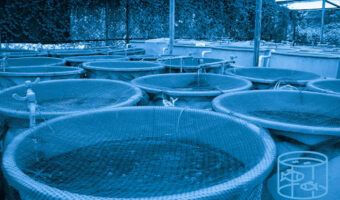Aquaculture Health and Disease Management
About This Course
The course “Aquaculture Health and Disease Management” provides a comprehensive study of the principles, strategies, and practices involved in maintaining the health and preventing the spread of diseases in aquaculture. This course is designed to equip participants with the knowledge and skills necessary to effectively manage the health of aquatic organisms and minimize the impact of diseases in aquaculture systems.
Through a combination of theoretical knowledge, practical demonstrations, and case studies, participants will delve into the core aspects of aquaculture health and disease management. They will gain insights into disease prevention, early detection, diagnosis, treatment, and the implementation of biosecurity measures in aquaculture operations.
The course will cover topics such as the impact of diseases on aquaculture, including their economic, environmental, and social implications. Participants will explore the principles of disease epidemiology, transmission, and the factors contributing to disease outbreaks in aquaculture systems.
Furthermore, participants will learn about the importance of biosecurity measures in aquaculture. They will understand the principles and practices of biosecurity planning, including the implementation of quarantine protocols, disease surveillance, and the prevention of pathogen introduction and spread.
In addition, participants will gain insights into the various diseases affecting different aquatic species in aquaculture. They will learn about the identification, diagnosis, and control strategies for common bacterial, viral, parasitic, and fungal diseases. They will explore different disease management techniques, including vaccination, treatment protocols, and the responsible use of veterinary products.
Throughout the course, participants will engage in practical exercises and hands-on demonstrations to develop their skills in disease identification, sampling techniques, and disease management interventions. They will learn about disease monitoring, record-keeping, and the importance of early detection and rapid response in disease management.
Participants will also gain insights into the importance of integrated disease management approaches in aquaculture systems. They will understand the role of nutrition, water quality management, and environmental factors in disease prevention and overall health management.
By the end of the course, participants will have a solid understanding of aquaculture health and disease management principles and practices. They will be equipped with the knowledge and skills to implement effective disease prevention and control measures, ensuring the health and sustainability of aquatic organisms in aquaculture systems.
Note: The course description provided is fictional and serves as an example. The actual course description may vary depending on the educational institution or program.
Learning Objectives
Material Includes
- E-Books
- Guide Papers
- Certificate of Completion
This course is best for:
- Aquaculture Practitioners: Individuals already working in the aquaculture industry, such as fish farm managers, aquaculture technicians, veterinarians, or health specialists, can enhance their knowledge and skills through this course. It provides them with a comprehensive understanding of aquaculture health management principles and disease prevention strategies.
- Fisheries and Aquaculture Professionals: Professionals involved in fisheries and aquaculture management, aquaculture extension services, or health consultancy will benefit from this course. It offers them insights into disease epidemiology, biosecurity measures, disease surveillance, and disease management protocols to support sustainable aquaculture practices.
- Researchers and Academics: Researchers and academics engaged in aquaculture health, fish pathology, veterinary sciences, or related areas will find this course valuable. It provides them with foundational knowledge of aquaculture health management principles and practices, allowing them to conduct informed research and teach relevant topics.
- Aquaculture Veterinarians: Veterinarians specializing in aquatic animal health or working in aquaculture health clinics will benefit from this course. It offers them a deeper understanding of disease diagnosis, prevention, treatment protocols, and biosecurity measures specific to aquaculture species.
- Students: Undergraduate or postgraduate students studying aquaculture, fisheries, marine biology, veterinary medicine, or related disciplines will find this course valuable. It complements their academic studies by providing them with a comprehensive understanding of aquaculture health management principles, disease prevention strategies, and diagnostics.
- Government Officials and Policy Makers: Government officials, policymakers, and individuals involved in fisheries and aquaculture policy development and regulation will gain valuable insights from this course. It offers them a deeper understanding of disease management strategies, biosecurity protocols, and the importance of sustainable aquaculture practices.
- Please note that the specific prerequisites and level of detail covered in the course may vary depending on the educational institution or program offering the course.






